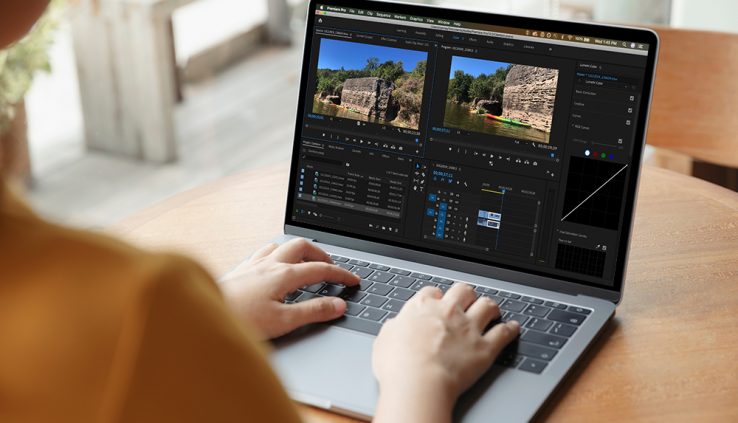Gear Roundup: The Best Laptops for Video Editing
By Adam Noyes
If you are working in video post production, your work station is important enough to make or break you. Speed and storage capabilities are what will set you up for success.
But how do you chose your work station? It can be a difficult process.
Check out this gear round up from premiumbeat.com to learn more below.
In the past, you could really only edit video on a desktop computer — laptops just weren’t up to speed in the editing realm. They didn’t have the horsepower to get renders out in a manageable fashion, and trying to edit on them was (and still is for underpowered laptops) a complete hassle. But, with the advent of new, more powerful computer parts available to consumers — such as implemented SSDs and slimmer GPUs — laptops are now a viable option for professional editors.
So, we’ve compiled a list of laptops that can expedite your rush edits, or even plug into a monitor to create a portable workstation. This list includes laptops across the entire spectrum of price range, including some of our favorite choices for different types of editors. Let’s dive in!
Things You Should Look for in an Editing Laptop
(The intro part of this video will explain all you need to know about computer components.)
If you’re unfamiliar with what you need to look for in a computer before purchasing, here’s a few things you need to know:
- The CPU (Central Processing Unit) is the brains of the operation. It performs most processing tasks within your PC, so you should prioritize it for editing computers. Performance is measured by Hz and core-count, so the higher the number on each of those, the more power it has (Ex: AMD Ryzen 7 3700X 3.6 GHz 8-Core Processor).
- The GPU (Graphics Processing Unit) is important in its own right for rendering and processing graphics. GPUs are measured in Graphic Memory, from 4GB-12GB. The higher the number, the more powerful the GPU (Ex: MSI Radeon RX 580 8 GB ARMOR OC Video Card). If you work in After Effects or DaVinci Resolve a lot, look for a good GPU in your laptop.
- Always buy SSDs (Solid State Drives) over HDDs (Hard Disk Drives). They can access information ten times faster than HDDs, and they can increase your editing speeds by accessing the footage seamlessly.
- RAM is not going to technically “speed up” your PC. Certain programs use a certain amount of RAM, so more RAM in your computer lets you open more programs at once.
These are all of the specs you need to look for in a laptop, along with what type of monitor it comes with. If you’re editing 4K footage, you should probably invest in a 4K laptop. A helpful tip you should remember is when you’re looking at laptops, if it’s marketed as a “gaming” laptop, odds are the specs will prioritize CPU/GPU power over peripherals — like a touchscreen or “tablet” functionality.

